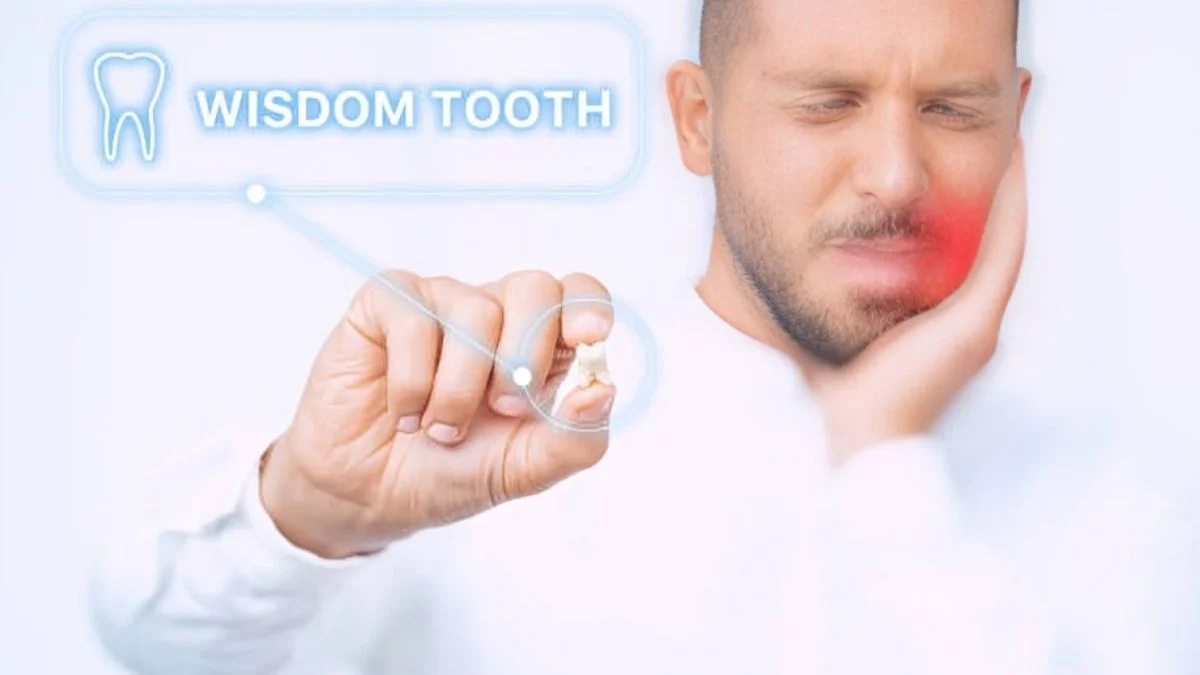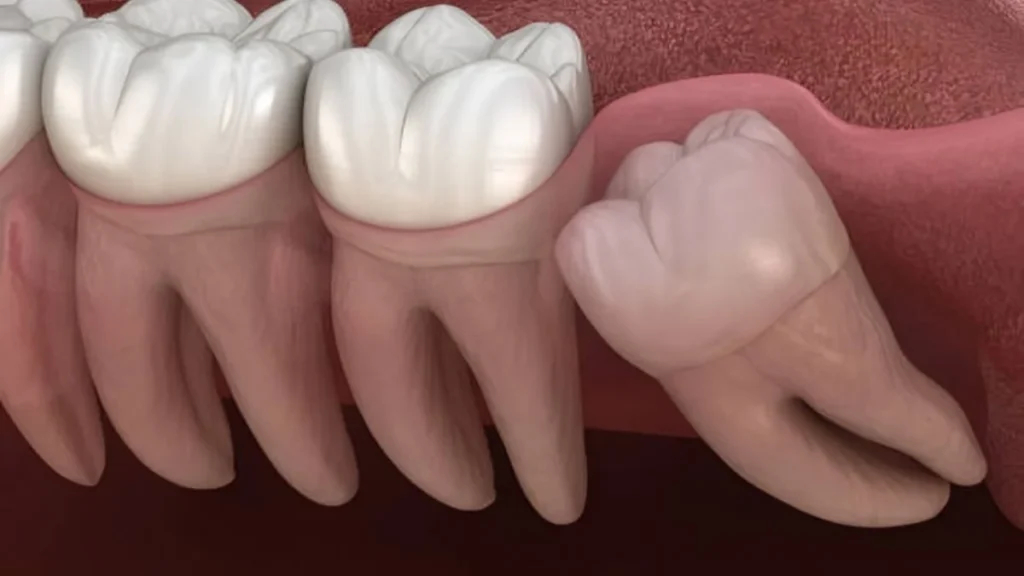HEALTH AND FITNESS
Wisdom Teeth Removal: When, Why, and What to Expect

Wisdom teeth, also known as third molars, are the last set of teeth to emerge in the mouth, usually appearing between the ages of 17 and 25. While some people experience no issues with their wisdom teeth, many find that these molars cause discomfort, crowding, or other dental complications. In such cases, wisdom teeth removal is often recommended to prevent future problems.
Understanding when and why wisdom teeth removal is necessary can help individuals make informed decisions about their oral health. This guide explores the signs that indicate wisdom teeth need extraction, the benefits of removal, and what to expect before, during, and after the procedure.
Table of Contents
1. When Do Wisdom Teeth Need to Be Removed?
Not all wisdom teeth require extraction. Some grow in properly and function just like other molars. However, many people do not have enough space in their jaw to accommodate these teeth, leading to issues such as pain, infection, and misalignment.

Signs That Wisdom Teeth May Need Removal:
- Persistent Pain or Discomfort: Pain at the back of the mouth may indicate impaction or pressure on other teeth.
- Crowding of Other Teeth: Wisdom teeth can push against existing teeth, leading to misalignment.
- Difficulty Chewing or Opening the Mouth: Limited jaw movement may occur if wisdom teeth are improperly positioned.
- Cysts or Jaw Stiffness: In some cases, impacted wisdom teeth can cause cyst formation around the gums.
If any of these symptoms occur, a dentist can assess the condition of the wisdom teeth through an exam and X-rays.
2. Why Wisdom Teeth Removal is Often Necessary
Wisdom teeth can lead to various complications if they do not have enough space to grow properly. Even when they partially erupt, they can create long-term dental issues.
Benefits of Wisdom Teeth Removal:
- Prevents Future Dental Problems: Eliminates the risk of cavities, gum infections, and misalignment.
- Reduces the Risk of Impacted Teeth: Teeth that fail to fully emerge can lead to pain and swelling.
- Protects Surrounding Teeth: Removing wisdom teeth can prevent damage to adjacent molars.
- Improves Oral Hygiene: Wisdom teeth are difficult to clean, making them more prone to decay.
In many cases, early removal of wisdom teeth can prevent the need for more extensive dental treatments in the future.
3. What Happens During the Wisdom Teeth Removal Process?
Understanding what to expect can help ease anxiety about the procedure. Wisdom teeth removal is a routine procedure performed by a dentist or oral surgeon.
Step-by-Step Breakdown of the Procedure:
- Initial Consultation and X-Rays: A dentist evaluates the position of the wisdom teeth and determines if removal is necessary.
- Anesthesia Options: Depending on the complexity of the extraction, local anesthesia, sedation, or general anesthesia may be used.
- Tooth Extraction: The dentist makes a small incision in the gum (if necessary), removes the tooth, and may use stitches to close the area.
- Post-Procedure Care: Patients receive instructions for managing swelling, discomfort, and healing.
Most wisdom teeth extractions take less than an hour, with recovery typically lasting a few days to a week.
4. Recovery Tips for a Smooth Healing Process
Proper aftercare is essential for minimizing discomfort and preventing complications.
Post-Surgery Care Recommendations:
- Apply Ice Packs: Reduces swelling and discomfort in the first 24 hours.
- Follow a Soft Food Diet: Eating soft foods like yogurt, mashed potatoes, and soups helps avoid irritation.
- Avoid Straws and Smoking: Using a straw or smoking can dislodge the protective blood clot, leading to dry socket.
- Take Prescribed or Over-the-Counter Pain Relievers: Helps manage discomfort after the procedure.
- Maintain Oral Hygiene with Care: Gentle rinsing with salt water can help keep the area clean.
Following the dentist’s instructions ensures a smooth and quick recovery.
5. The Risks of Delaying Wisdom Teeth Removal
Some people choose to delay wisdom teeth removal because they do not feel immediate pain. However, waiting too long can lead to serious oral health problems.
Potential Risks of Delaying Extraction:
- Infections and Abscesses: Impacted teeth can create pockets where bacteria grow.
- Damage to Nearby Teeth: Pressure from growing wisdom teeth can weaken or shift adjacent molars.
- Cysts and Jawbone Damage: Some impacted teeth develop cysts that affect bone structure.
- Increased Pain and Swelling Over Time: Wisdom teeth may become more difficult to remove the longer they stay in place.
A dentist can evaluate whether removal is necessary to avoid these complications.
6. Can Wisdom Teeth Stay in Place Without Removal?
Not everyone needs wisdom teeth removed. If they grow in properly and do not cause discomfort, they may not require extraction.
When Wisdom Teeth Can Stay:
- They Are Fully Erupted and Aligned Correctly: Some wisdom teeth grow in without affecting surrounding teeth.
- There Is Enough Space in the Jaw: If the teeth fit comfortably without crowding, they may not need removal.
- They Are Easy to Clean: If brushing and flossing are possible, they may not pose an issue.
Regular checkups with a dentist ensure that wisdom teeth remain healthy over time.
7. Wisdom Teeth Removal for Different Age Groups
The best time for wisdom teeth removal is typically in the late teens or early twenties, but some adults may need extraction later in life.
Wisdom Teeth Removal at Different Stages:
- Teenagers and Young Adults (17-25): The ideal time for extraction, as the roots are not fully developed, making removal easier.
- Adults (25+): Removal may be more complex, but it can still prevent long-term dental problems.
- Older Adults (40+): Wisdom teeth extraction may be necessary if they cause infections or impact surrounding teeth.
The earlier the extraction, the easier the procedure and recovery tend to be.
8. Finding the Right Dentist for Wisdom Teeth Removal
Choosing a qualified dental professional ensures a smooth and safe experience.
What to Look for in a Dentist:
- Experience in Wisdom Teeth Removal: Ensures the procedure is handled efficiently.
- Use of Advanced Technology: Digital X-rays and imaging help with accurate diagnosis.
- Comfort-Focused Approach: Dentists who prioritize patient comfort make the experience easier.
- Post-Surgical Support: Clear aftercare instructions and follow-up appointments ensure proper healing.
For those needing wisdom teeth removal, Dentistry At Waterview provides expert care and guidance to ensure a smooth and successful procedure.
Conclusion
Wisdom teeth removal is often necessary to prevent pain, crowding, and long-term oral health issues. Recognizing the signs that indicate extraction is needed can help individuals take proactive steps toward maintaining a healthy smile.
While not everyone requires wisdom teeth removal, regular dental checkups ensure that any potential problems are addressed early. Consulting a trusted provider like Dentistry At Waterview can help individuals make the best decision for their oral health and well-being.
Want more tips? Visit our blog for valuable insights and resources!
-

 GENERAL2 months ago
GENERAL2 months agoUncovering the World of кинокрадко: The Dark Side of Film Piracy
-

 GENERAL1 month ago
GENERAL1 month agoUnveiling the Art of преводсч: How Translators Bridge Language Barriers
-

 YOGA1 year ago
YOGA1 year ago4 Person Yoga Poses for Beginners
-

 GENERAL3 weeks ago
GENERAL3 weeks agoChristofle – For Those Who Dream of Family Heirloom Silver























